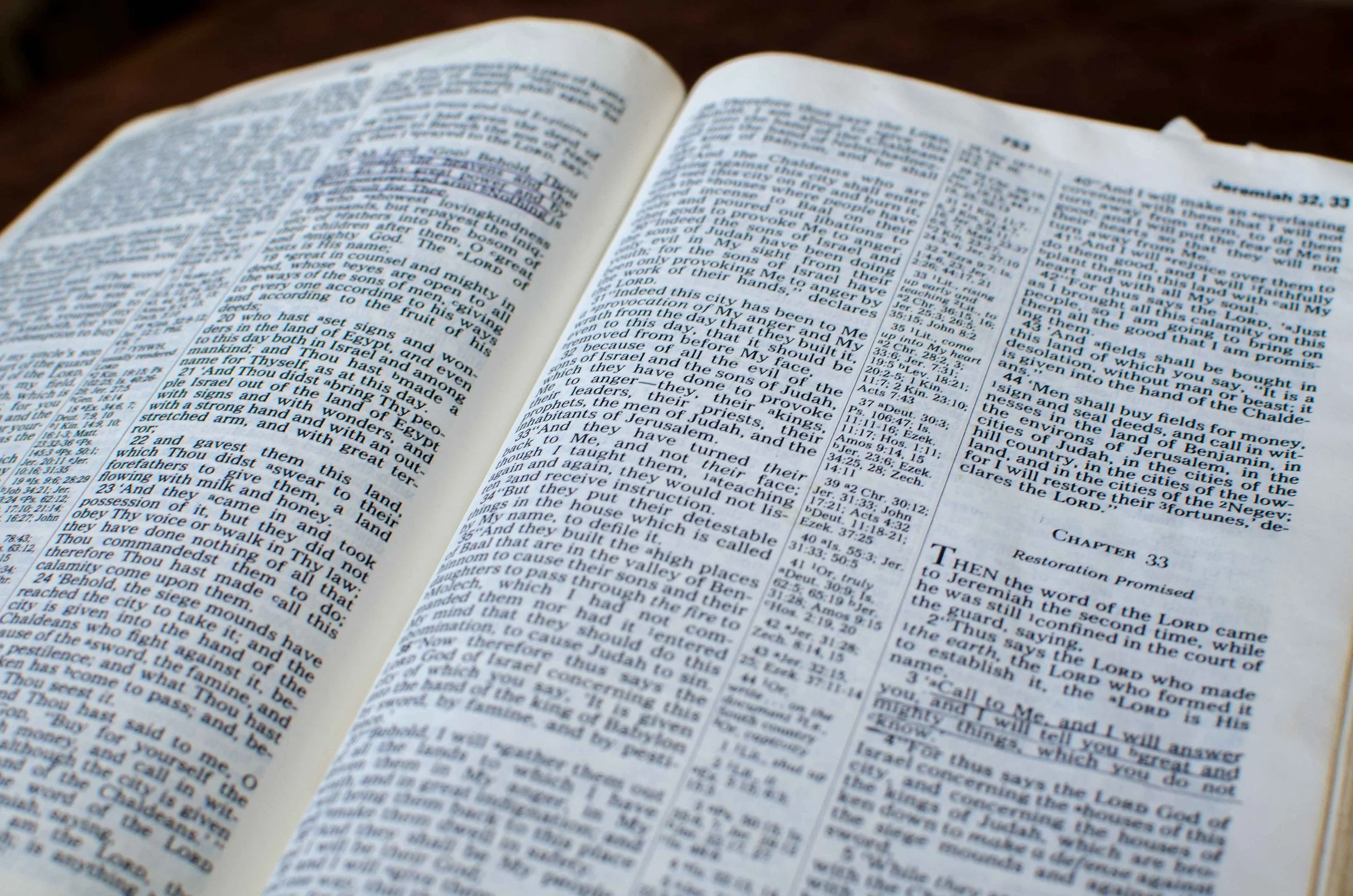Seeing Him Who is Unseen
I am sure you have all felt the weight of life pressing in on you at some point or other. Maybe you have been blessed to have not felt it as heavily as others, or maybe you have felt as though life weighs on you like the water pressure at 1000 feet below the surface. My husband and I have had an interesting life. Not that we have done so many amazing things or traveled to so many amazing places. Golly, neither one of us has published a book or won the lottery. If you met us you would probably agree that we are not very exotic, however, we have gone through plenty of tough times together.
Pixabay
Before we married, we spent a summer in what was then known as Zaire, Africa. We both almost died after contracting cerebral malaria, the most deadly form of that vicious disease. We lived to tell the tale, got married and moved to Ohio, where Mark started working on his PhD. Only a year in, I found out I was pregnant with our first child. We lived in student housing and had no health insurance. God provided a place to live, a little two room shack on a river outside of town with a propane toilet. Piecing together numerous part time jobs, we had, not just one, but two babies in that little home, without health insurance. Our story goes on through various rusty trucks and cars, one of those part time jobs becoming full time and the purchase of the home we currently live in. Over the years we have experienced other heartaches, things that have tested our faith and our limits, not only as individuals, but as a couple. Even now, our hearts are daily burdened by the difficulties of family and loved ones.
When Moses was born, this was the edict that Pharaoh put forth:
“Then the king of Egypt spoke to the Hebrew midwives, one of whom was named Shiphrah and the other was named Puah; and he said, ‘When you are helping the Hebrew women to give birth and see them upon the birthstool, if it is a son, then you shall put him to death; but if it is a daughter, then she shall live.’”
Pixabay
Moses' parents were not about to let their son be killed. Taking no thought for the King's edict they kept their baby boy hidden for three months. When they knew they could no longer hide the child, his mother put him in a basket and set him among the reeds of the Nile river close to where Pharaoh's daughter came to bathe. When she spotted the basket among the reeds she had her maids get it for her. When she saw the child, I have a feeling, she fell in love. She named him Moses and the rest is history.
Recently I was reading in Hebrews and came across this story in the Hall of Faith, found in Hebrews 11. These three verses stood out to me regarding Moses' character.
“24 By faith Moses, when he had grown up, refused to be called the son of Pharaoh’s daughter,
25 choosing rather to endure ill-treatment with the people of God than to enjoy the passing pleasures of sin,
26 considering the reproach of Christ greater riches than the treasures of Egypt; for he was looking to the reward.”
There are several things we can learn about Moses from these verses. Let's explore.
PIxabay
1. He grew up in Pharaoh's house. Moses was by all accounts the child of Pharaoh's daughter. He was called her son, because the verse says that he refused to be called her son. Just think about what sort of childhood he had. He was raised in the center of the Egyptian kingdom. He was exposed not only to the wealth, pleasures and education available to the ruling house, but he was also exposed to the religious teachings of Pharaoh's priests. However, we find that Moses was not influenced by any of these things.
2. He turned away from his position as an Egyptian to take his place among the Hebrews. I was struck by this. Moses had grown up with access to so much, yet he chose to go back to his roots. The Bible is not clear on how much time, Moses got to spend with his birth mother. However, I am sure during those special times she shared stories with him of the Israelite people and their God. Perhaps it was during these times that a flame began in his heart for his people and the One who would become his God.
3. He was looking to the reward. Do we know that Moses knew who Jesus was? No. Do we know that he knew there was an eternal reward? No. But Moses had a deep inner conviction that there was something and someone, much greater than himself or the Pharaoh of Egypt, ruling the universe. Who knows, but that at night, when the sky was black and the diamonds of the universe sparkled in its expanse that something in him, didn't yearn to believe there was so much more than just the grandeur of Egypt.
This brings me to verse 27 of Hebrews.
“27 By faith he left Egypt, not fearing the wrath of the king; for he endured, as seeing Him who is unseen.”
The morning I read this, I was feeling a bit overwhelmed and discouraged. Life was doing its best to wear me down. From the original story in Exodus we are given a slightly different look at this man called Moses.
“11 Now it came about in those days, when Moses had grown up, that he went out to his brethren and looked on their hard labors; and he saw an Egyptian beating a Hebrew, one of his brethren.
12 So he looked this way and that, and when he saw there was no one around, he struck down the Egyptian and hid him in the sand.
13 He went out the next day, and behold, two Hebrews were fighting with each other; and he said to the offender, “Why are you striking your companion?”
14 But he said, “Who made you a prince or a judge over us? Are you intending to kill me as you killed the Egyptian?” Then Moses was afraid and said, “Surely the matter has become known.”
15 When Pharaoh heard of this matter, he tried to kill Moses. But Moses fled from the presence of Pharaoh and settled in the land of Midian, and he sat down by a well.”
The man described in Hebrews 11 hardly seems to match the man we find in Exodus. Bare with me, if you will, while I do a bit of comparing and contrasting.
1. By faith he left Egypt vs. Moses fled from the presence of Pharaoh.
2. Not fearing the wrath of the king vs. Moses was afraid.
Those of you who are familiar with the Old Testament and the full story of Moses and the exodus of the Israelites from Egyptian bondage, know there is so much more to the story than just these few verses. There begins a long, drawn out and complex relationship between God, Moses and the children of Israel. I am by no means a Bible scholar. My three years at Moody Bible Institute taught me many things, including how to study God's word, but there are still things that baffle me.
The book of Hebrews paints Moses as a man of faith, fearless and able to endure, but I believe Moses became those things as he walked through the difficulties of life. I'm sure you have heard the idea that some of us are journey people and some of us are destination people. My husband is all about the end goal. I am all about the journey along the way. The fact of the matter is, we are all, by God's design, journey people. We all are walking along in this life, struggling through the hard bits and hoping to enjoy more of the good bits. We don't get to go directly to go, or to jump ahead to the end. It drives me crazy when my husband will read the last few pages of a book, just to see how it ends without reading the entire book....destination mentality.
Moses became a man of faith, as he grew to know God. He became fearless as he saw God work and overcome. He endured because he saw Him who is unseen. The same is true for us. We become men and women of faith as we grow to know God better. We do that as we struggle on the journey, giving the difficulties over to Him and allowing Him to mold and shape us to be more like Christ. We become fearless as we see God work. We know there is nothing God cannot do. We also know that He doesn't always do the things we would like, because He has a greater purpose. Our fear disappears as we put our complete trust in Him and His goodness. Finally, we can endure because we can see Him who is unseen.
Pixabay
Today, if you are going through a hard time, try to see God. I mean really see Him. Delve deep into His word. Pray to know Him better. Wait on Him in the quietness. Depend on Him in the chaos. Let Him transform your mind, so that you can see with the eyes of your heart. At that point you will endure as seeing Him who is unseen.











